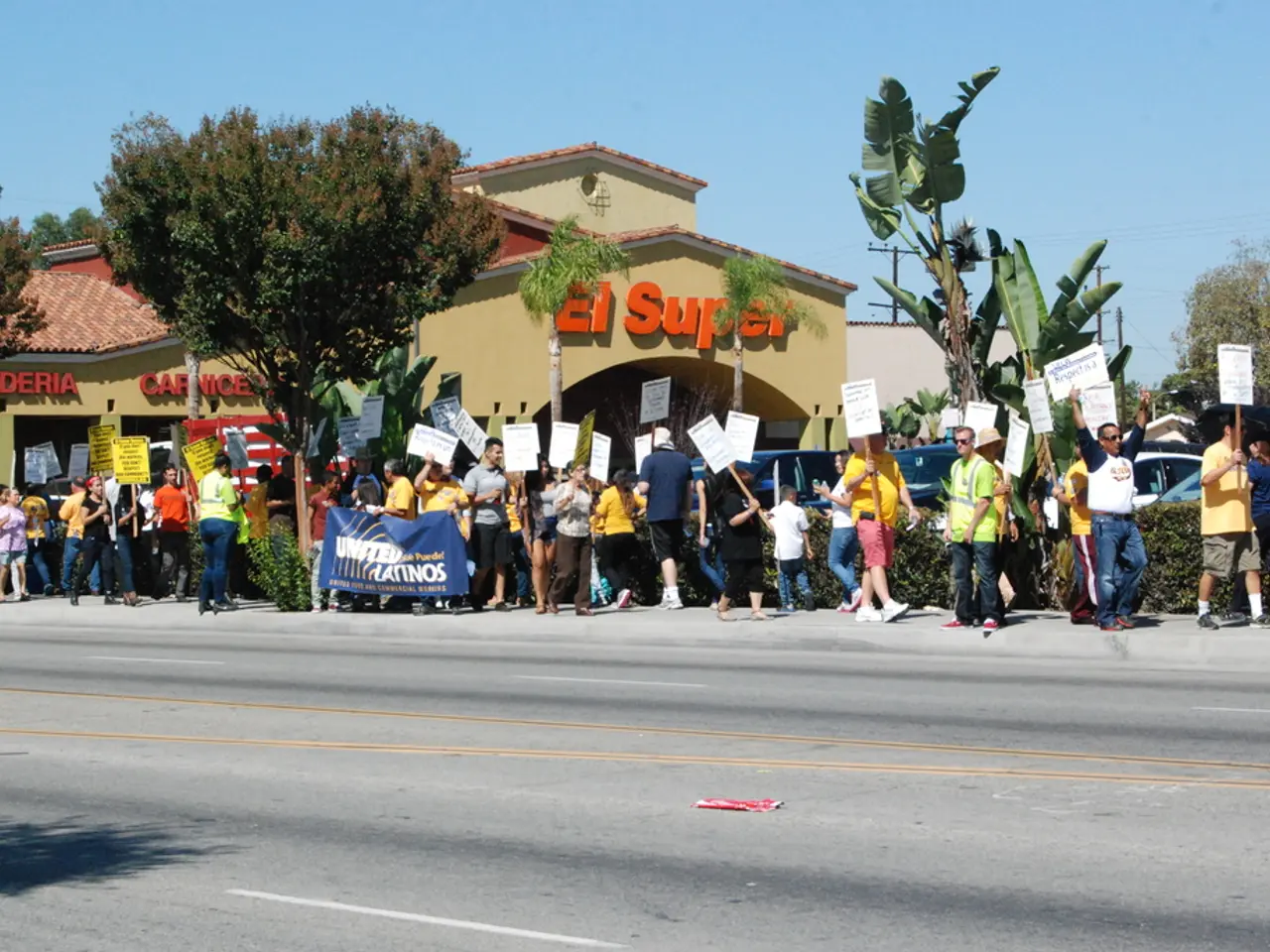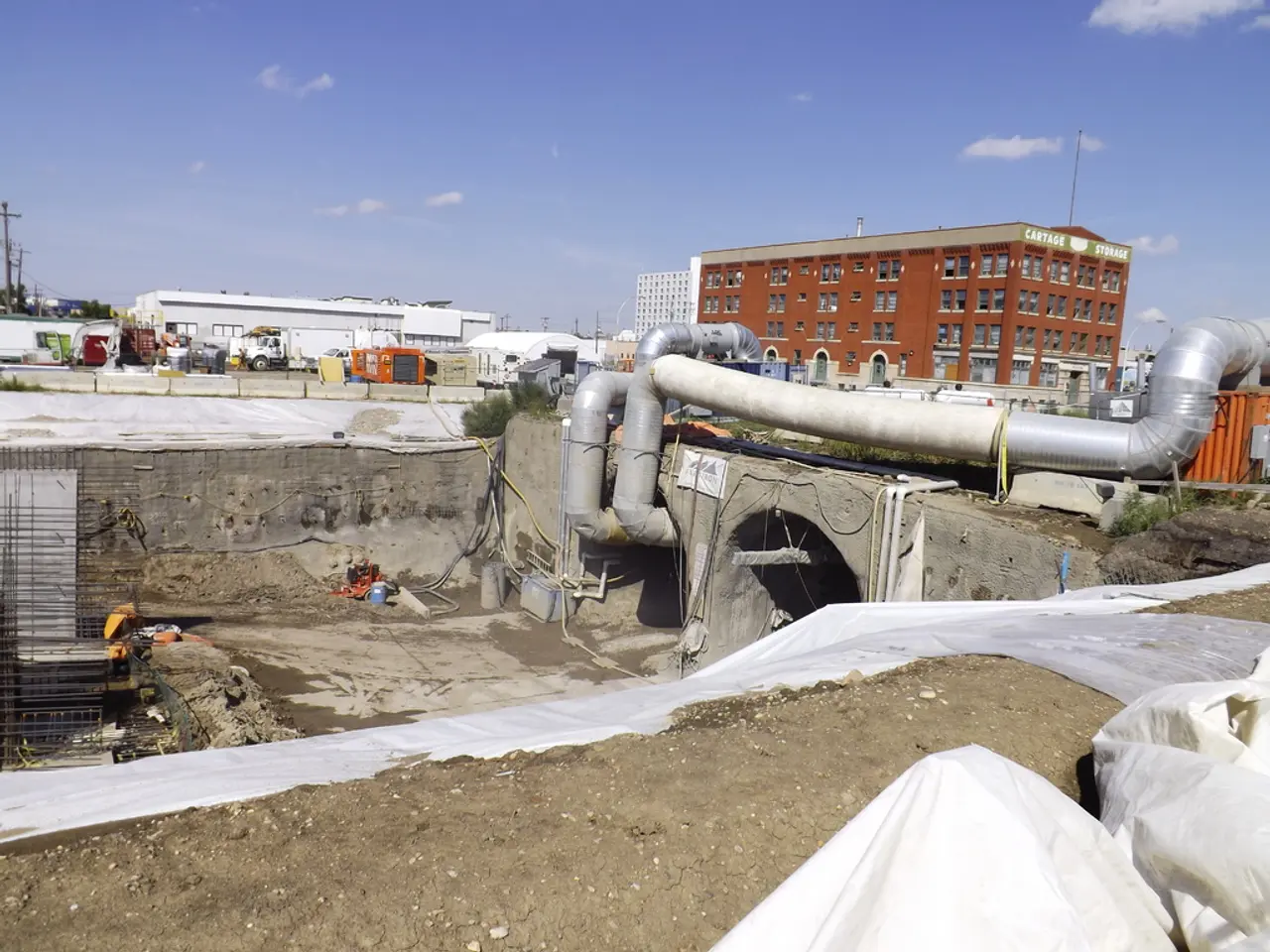Coalition coordination set to improve, reveals Chancellor's top aide Frei. - Coalition Leader Frei unveils enhanced electoral process
The cooperation within Germany's black-red coalition, formed by the CDU/CSU and SPD, has been a significant factor in the ongoing debate surrounding the electricity tax, leading to delays and compromises.
Key points on the situation:
- The coalition committee, comprising top leaders from both parties, has been meeting regularly to discuss potential adjustments to the electricity tax, aiming to alleviate energy costs for households and businesses. However, the committee has yet to reach a consensus on broadening relief beyond the industrial and agricultural sectors [1][3].
- The SPD Finance Minister, Lars Klingbeil, did not include any electricity tax reduction in the 2025/26 budget draft, a move that has sparked criticism and highlighted tensions within the coalition [2]. This omission, which contradicts election promises, suggests differing priorities within the coalition, with the SPD appearing more cautious about the fiscal impact.
- Chancellor Friedrich Merz's Chief of Staff, Wolfgang Frei, along with CDU/CSU members, have advocated for broader tax relief, including for private consumers. Merz himself has expressed optimism about reaching consensus, emphasising a willingness to support households if financially viable. However, the coalition faces the challenge that extending tax relief to all consumers could cost around EUR 5.4 billion next year, necessitating cuts in other initiatives [1].
- The coalition committee serves as a crucial platform for coordination and conflict resolution. Despite efforts in at least two meetings since the new government took office, the coalition has not reached a firm agreement on reducing electricity tax for all consumers. SPD voices prioritise relief for large industries to protect jobs, while business groups and some smaller enterprises express frustration over delays and uncertainty [1][3].
- In a critical evaluation, Frei admitted that not participating in the latest coalition committee meeting due to a commitment in his constituency was not the right decision in retrospect [6].
- The disagreement between the heads of the Union and SPD occurred within the coalition committee [4]. As a result, the plan to reduce the electricity tax remains as is [5].
In summary, the cooperation within the black-red coalition has been marked by cautious negotiation and partial deadlock on the electricity tax issue, influenced by financial concerns from the SPD and pressure from CDU/CSU and Frei's office to fulfil electoral promises. The decision-making process remains ongoing, with debates expected to continue as the coalition seeks a balanced solution that aligns with its fiscal constraints and political commitments [1][2][3].
- Despite regular meetings of the coalition committee, composed of top leaders from the CDU/CSU and SPD, no consensus has been reached on broadening electricity tax relief to include private consumers, as the SPD prioritizes relief for large industries to protect jobs.
- The ongoing debate surrounding the electricity tax, driven by cautious negotiation within the black-red coalition, has been influenced by financial concerns from the SPD and pressure from the CDU/CSU and Frei's office to fulfill electoral promises, with the decision-making process continuing as the coalition seeks a balanced solution that aligns with its fiscal constraints and political commitments.








